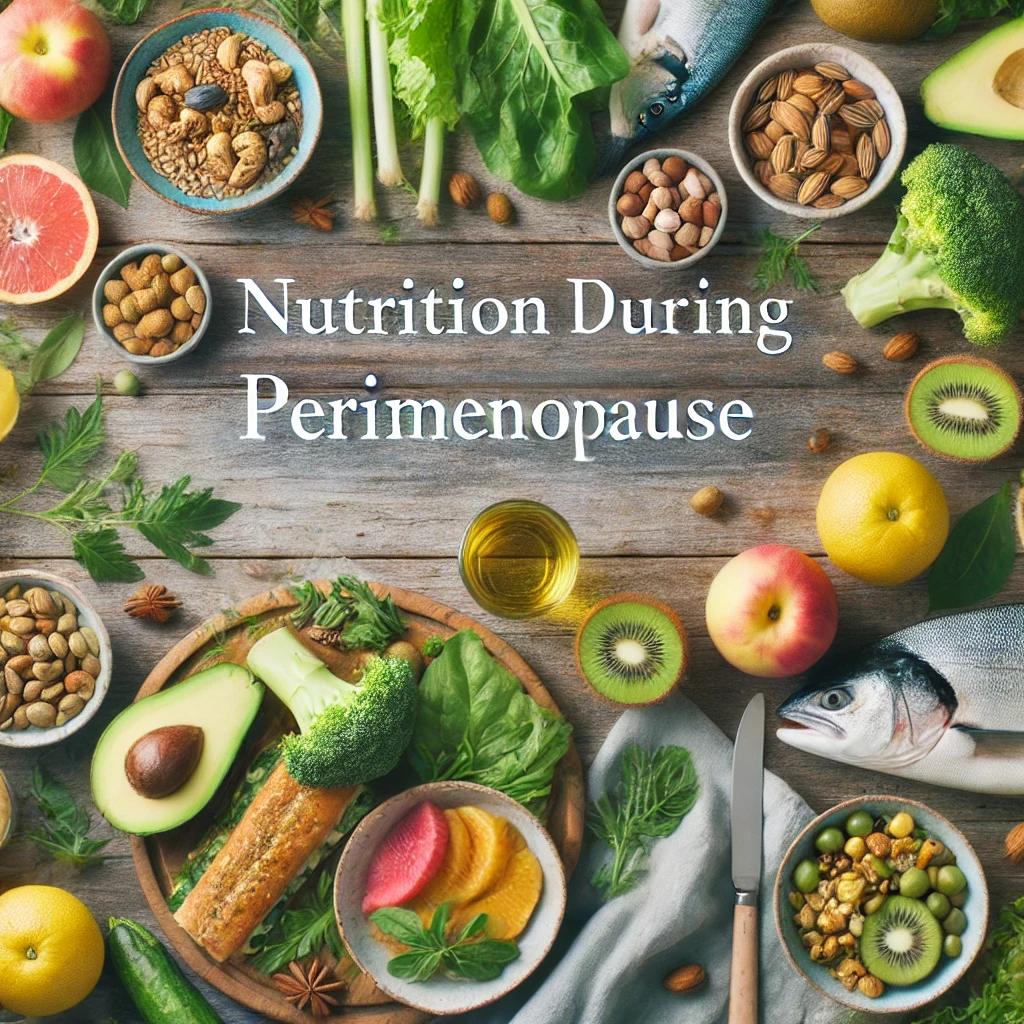
Nutrition During Perimenopause
Perimenopause and menopause are pivotal life stages for women, characterized by a range of hormonal fluctuations that can significantly impact physical and emotional well-being. As estrogen, progesterone, and testosterone decline, it is common to experience a variety of symptoms, including mood swings, fatigue, sleep disturbances, weight gain, and more. Additionally, the balance of hormones like cortisol and serotonin also plays a crucial role in these changes, influencing everything from stress levels to bone health.
To manage these changes effectively, nutrition plays a vital role. By choosing foods that help stabilize hormones, support bone density, reduce inflammation, and regulate mood, women can experience a smoother transition during this life stage. Here’s a breakdown of some key nutrients and foods that can support a healthy transition through perimenopause and menopause:
Phytoestrogens
Phytoestrogens are plant-based compounds that mimic estrogen in the body, potentially helping to balance estrogen levels as they naturally decline during perimenopause and menopause. Including these foods in the diet may help ease symptoms.
Foods rich in phytoestrogens:
- Soy (tofu, tempeh, edamame)
- Flax seeds
- Legumes (chickpeas, lentils)
- Grapes, apples, and peaches
- Garlic, celery, and peanuts
- Walnuts
Heart-Healthy Fats
Heart-healthy fats not only support cardiovascular health but also provide essential fatty acids that help maintain hormone balance. Healthy fats can reduce inflammation and support brain function, which is beneficial for managing mood changes.
Foods rich in heart-healthy fats:
- Avocados
- Olive oil/olives
- Nuts and seeds (e.g., almonds, chia seeds, flaxseeds)
Complex Carbohydrates
As hormone levels fluctuate, blood sugar regulation can become more challenging. Including complex carbohydrates can help stabilize blood sugar levels and prevent mood swings and fatigue.
Foods rich in complex carbohydrates:
- Whole grains (oats, quinoa, brown rice, whole wheat)
- Sweet potatoes and other root vegetables
- Beans and lentils
Calcium and Vitamin D
One major concern during menopause is the risk of osteoporosis due to the decline in estrogen, which plays a key role in maintaining bone density. Consuming adequate amounts of calcium and vitamin D is essential for bone health.
Foods rich in calcium:
- Dairy products (milk, cheese, yogurt)
- Leafy greens (kale, broccoli, bok choy)
- Fortified plant-based milks (almond, soy)
Foods rich in vitamin D:
- Fatty fish (salmon, tuna, sardines, mackerel)
- Fortified foods (tofu, plant milks)
- Egg yolks
- Mushrooms
Omega-3 Fatty Acids
Omega-3 fatty acids support brain health, improve mood, reduce inflammation, and may help alleviate some of the emotional symptoms associated with perimenopause, such as anxiety and depression. Omega-3s also promote heart health, which is important as cardiovascular risk increases post-menopause.
Foods rich in Omega-3s:
- Fatty fish (salmon, sardines, herring, mackerel)
- Walnuts
- Flax seeds and chia seeds
Magnesium
Magnesium is known to have a calming effect on the body and mind, playing a role in muscle function and relaxation. It can help improve sleep quality, reduce stress, and alleviate the muscle cramps or tension that some women experience during perimenopause.
Foods rich in magnesium:
- Nuts and seeds (almonds, pumpkin seeds, sunflower seeds)
- Leafy greens (spinach, Swiss chard)
- Fermented foods (kefir, tempeh, kombucha)
B Vitamins
B vitamins are critical for energy production, cognitive function, and mood regulation. They can help manage the fatigue and brain fog that often accompany perimenopause and menopause.
Foods rich in B vitamins:
- Whole grains (brown rice, oats, quinoa)
- Eggs
- Legumes (chickpeas, lentils, beans)
- Avocados
- Citrus fruits
Fiber and Hydration
Dehydration can worsen symptoms like fatigue and bloating, so staying hydrated is important. Additionally, maintaining digestive health is key during menopause, as some women experience gastrointestinal symptoms, including bloating and constipation.
Fiber-rich foods for digestion:
- Beans, lentils, and legumes
- Whole grains and oats
- Fruits and vegetables (especially those high in soluble fiber like apples and carrots)
Balanced Plate
A balanced plate can help ensure you’re getting all the necessary nutrients to support your changing body: protein, vegetables, complex carbohydrates, healthy fats, and hydration.
Incorporating these foods into your daily diet can help minimize the symptoms of perimenopause and menopause, support bone and heart health, and stabilize mood, ultimately leading to a healthier, more comfortable transition.
If you’re ever feeling overwhelmed or struggling to manage the changes, it’s always a good idea to talk with a healthcare provider or registered dietitian who can help tailor your nutrition to your specific needs during this time.